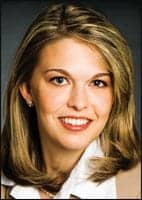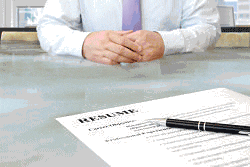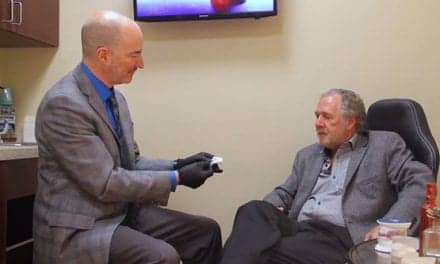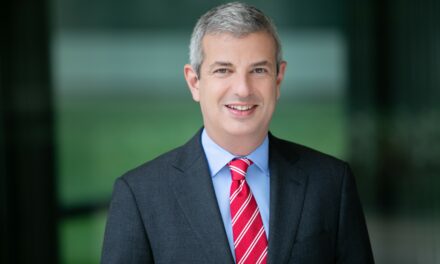 |
The sleep medicine industry has a problem that few dare to vocalize—the employment of unregistered, untrained technologists to score sleep studies. Whether used as a cost-cutting measure or a way to make up for shortages in qualified staff, this practice is one that many sleep laboratories and facilities have become accustomed to. Now, more than ever, sleep laboratories across North America need to steer clear of this practice and other scoring pitfalls in order to ensure that they are not undermining the practice of polysomnograpy.
ISSUE #1: UNSKILLED PERSONNEL
In many areas, sleep laboratories are experiencing difficulties recruiting registered technologists, so they resort to hiring unskilled personnel to assist at their facilities. Working as a product applications specialist for a leading pharmaceutical company in its sleep software department, I traveled throughout North America and have personally witnessed the extent to which unqualified individuals are employed to score sleep studies. Earlier in my career, I even worked at some sleep facilities where high school students were being put to the task. Unfortunately, such practices are not nearly as uncommon as we might reasonably expect.
 |
| Natalie Morin, RPSGT |
SOLUTION
We should strive to make sleep medicine training, and courses certified by the AASM, readily available in an effort to promote professionalism among sleep technologists while encouraging unregistered practitioners to obtain their RPSGT certification.
ISSUE #2: INDUSTRY UNDER THE MICROSCOPE
The sleep medicine industry is currently under investigation by the Office of Inspector General, which will ascertain the appropriateness of Medicare payments for both sleep studies and CPAP devices. Sleep laboratories that rank patient care below the almighty dollar may soon find that their business ethics are being brought into question. Misdiagnoses made by underqualified and inexperienced individuals might not just be a business problem; they could very soon be a legal one. Those who have scored sleep studies that have led to the unnecessary placement of a patient on CPAP may suddenly find themselves under scrutiny regarding their business practices and patient care.
SOLUTION
Sleep laboratories across the country (both accredited and nonaccredited) would be well advised to incorporate quality assurance programs into their routine operations. This would confirm that their facility is providing the highest caliber of patient care possible. These programs can include (but are not limited to) a collection of peer cross-referencing or industry-reviewed practices such as inter-rating reliability and audit-testing for all scoring technologists. Bringing in a third-party company to assist with the implementation of these measures can free up staff to attend to other critical quality matters—like updating procedures routinely to correspond with documentation.
ISSUE #3: SCORING INACCURACY
As it stands, even registered technologists need to be tested and reviewed periodically to ensure that the scoring of sleep studies is done correctly. RPSGT credentials alone do not necessarily mean that someone is scoring as accurately as possible on every occasion. Even a well-seasoned technologist (over the course of their career) will occasionally stray from proper scoring procedures. Nevertheless, with the proper quality control measures in place and periodic auditing, such oversights can be quickly rectified.
SOLUTION
Practice and precision are essential. Peer reviews, quality assurance, and randomly selected studies for evaluation are all keys to maintaining the highest standards. Under recent amendments1 to the scoring rules by the AASM, many technologists are forced to undertake new training to fully comprehend the difference between their scoring techniques and newly mandated ones. The AASM states that on an annual basis for accreditation purposes, inter-rater reliability testing should be performed on 12 scored sleep studies per technologist. This should constitute the bare minimum of quality audits that any sleep laboratory conducts.
ISSUE #4: SCORING QUOTAS
Both hospital-based and private sleep laboratories are responsible for seeing that patient care and quality results remain top priorities. Sleep laboratories requiring technologists to score while the patient sleeps put quality in jeopardy. Likewise, laboratories that demand a certain quota of tests per day from each technologist are probably pressuring them to score too quickly and hence causing an increase in errors.
SOLUTION
The scoring of sleep studies cannot be rushed or expedited. Attention to detail is paramount when it comes to giving patients a proper diagnosis. New scoring technologists should be expected to take their time scoring a single study. They need to undergo proper training, guidance, and tutelage before they can function rapidly on their own. Needless to say, hiring staff with little or no medical background due to budgetary concerns or human resource deficits can be detrimental.
ISSUE #5: AUTO SCORING
As with other bustling industries, we are seeing the introduction of new technologies that conveniently offer automatic scoring or online auction houses for the scoring of sleep studies. While auto scoring and online auction houses may save time and money, accuracy and accountability can be sacrificed.
SOLUTION
While the advancements of automatic scoring technologies should not be fully discounted, we have to remember the central importance of the RPSGT qualifications. Accurate scoring of sleep studies is the foundation of sleep medicine. If this fundamental act is not executed precisely and professionally, then the entire industry is undermined.
PATIENT CARE ABOVE ALL ELSE
Many people have successfully taught themselves how to drive a car. But that doesn’t eliminate the fact that they still need a license to drive one. Written tests ensure that we fully understand the rules of the road, and road tests prove our technique and ability. This simplified analogy is just as true in the scoring of sleep studies. Knowing the basics does not give someone the right to score patient sleep studies on their own. That right has to be earned only through a system of professional testing.
Public and private laboratories alike can begin to address the issues that threaten the credibility of scoring by internally mandating that only registered technologists score sleep studies. This approach makes sense from a business perspective since it also can be utilized as a marketing strategy. These reforms publicly validate a facility by setting it apart as a premier sleep laboratory that places quality of patient care above all else. Referring physicians will be duly impressed by the elevated standards guaranteed by these laboratories.
Natalie Morin, RPSGT, is president and CEO of Sleep Strategies Inc, a provider of sleep scoring and consulting services for leading hospitals, private sleep clinics, pharmaceutical companies, home care organizations, and research universities worldwide. The author can be reached at [email protected].
REFERENCE
- Standards for Accreditation of Sleep Disorders Centers. www.aasmnet.org/Resources/PDF/Dec2008CenterStandards.pdf. Accessed March 4, 2009.





